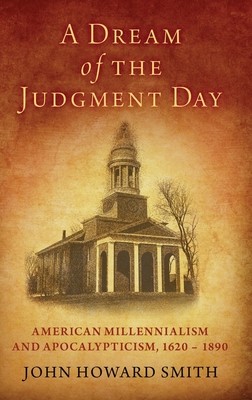
- We will send in 10–14 business days.
- Author: John Howard Smith
- Publisher: Oxford University Press, USA
- ISBN-10: 0197533744
- ISBN-13: 9780197533741
- Format: 15.5 x 23.6 x 3.3 cm, kieti viršeliai
- Language: English
- SAVE -10% with code: EXTRA
Reviews
Description
The United States has long thought of itself as exceptional--a nation destined to lead the world into a bright and glorious future. These ideas go back to the Puritan belief that Massachusetts would be a "city on a hill," and in time that image came to define the United States and the American mentality. But what is at the root of these convictions? John Howard Smith's A Dream of the Judgment Day explores the origins of beliefs about the biblical end of the world as Americans have come to understand them, and how these beliefs led to a conception of the United States as an exceptional nation with a unique destiny to fulfill. However, these beliefs implicitly and explicitly excluded African Americans and American Indians because they didn't fit white Anglo-Saxon ideals. While these groups were influenced by these Christian ideas, their exclusion meant they had to craft their own versions of millenarian beliefs. Women and other marginalized groups also played a far larger role
than usually acknowledged in this phenomenon, greatly influencing the developing notion of the United States as the "redeemer nation."
EXTRA 10 % discount with code: EXTRA
The promotion ends in 21d.20:30:25
The discount code is valid when purchasing from 10 €. Discounts do not stack.
- Author: John Howard Smith
- Publisher: Oxford University Press, USA
- ISBN-10: 0197533744
- ISBN-13: 9780197533741
- Format: 15.5 x 23.6 x 3.3 cm, kieti viršeliai
- Language: English English
The United States has long thought of itself as exceptional--a nation destined to lead the world into a bright and glorious future. These ideas go back to the Puritan belief that Massachusetts would be a "city on a hill," and in time that image came to define the United States and the American mentality. But what is at the root of these convictions? John Howard Smith's A Dream of the Judgment Day explores the origins of beliefs about the biblical end of the world as Americans have come to understand them, and how these beliefs led to a conception of the United States as an exceptional nation with a unique destiny to fulfill. However, these beliefs implicitly and explicitly excluded African Americans and American Indians because they didn't fit white Anglo-Saxon ideals. While these groups were influenced by these Christian ideas, their exclusion meant they had to craft their own versions of millenarian beliefs. Women and other marginalized groups also played a far larger role
than usually acknowledged in this phenomenon, greatly influencing the developing notion of the United States as the "redeemer nation."


Reviews